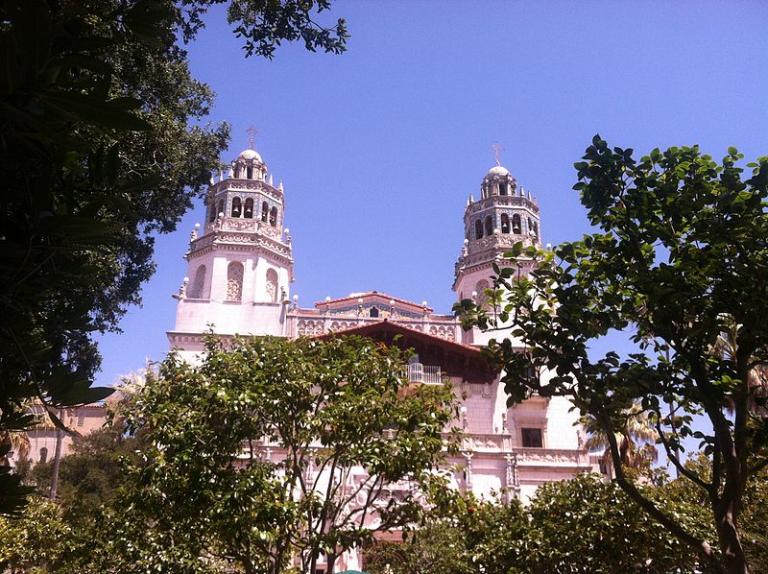
(Wikimedia Commons public domain image)
Here are two more passages from Farid al-Din ‘Attar’s famous Sufi mystical poem, written in Persian in the early thirteenth century, titled Mantiq al-Tayr (“The Conference of the Birds”).
The first warns us to avoid a self-righteous overeagerness to judge others without charity:
A sinner died, and, as his coffin passed,
A man who practiced every prayer and fast
Turned ostentatiously aside — how could
He pray for one of whom he knew no good?
He saw the sinner in his dreams that night,
His face transfigured with celestial light.
“How did you enter heaven’s gates,” he said,
“A sinner stained with filth from foot to head?”
“God saw your merciless, disdainful pride,
And pitied my poor soul,” the man replied. (90)
The second reminds us of the transience of earthly possessions and, indeed, of earthly life itself.
Azrael (עזראל) is often given to the Hebrew Bible’s “angel of destruction.” The Qur’an refers to an “angel of death” or Malak al-Mawt (مَلَكُ المَوْتِ), which is obviously very close to the synonymous rabbinic Hebrew term Malach ha-Mawet. Islamic-Arabic tradition adopts the name as ʿAzrāʾīl (عزرائيل) and makes him responsible for transporting the souls of the deceased after death.
A king who loved his own magnificence
Once built a palace and spared no expense.
When this celestial building had been raised,
The gorgeous carpets and its splendor dazed
The crowd that pressed around – a servant flung
Trays heaped with money to the scrabbling throng.
The king now summoned all his wisest friends
And said: “What do I lack? Who recommends
Improvements to my court?” “We must agree,”
They said, “no man could now or ever see,
In all the earth, a palace built like this.”
An old ascetic spoke. “One thing’s amiss,”
He said; “there’s one particular you lack.
This noble structure has a nasty crack
(Though if it weren’t for that it would suffice
To be the heavenly court of paradise).”
The king replied: “What crack? Where is it? Where?
If you’ve come here for trouble, then take care!”
The man said: “Lord, it is the truth I tell –
And through that crack will enter Azra’el.”
It may be you can block it, but if not,
Then throne and palace are not worth a jot!
Your palace now seems like some heavenly prize,
But death will make it ugly to your eyes;
Nothing remains for ever and you know –
Although you live here now – that this is so.” (106-107)
I’ve always had an acute sense of the transience of life and the fleetingness of things. Whenever I tour places such as Hearst Castle and Scotty’s Castle in California, or Neuschwanstein in Bavaria, or Craigdarroch Castle in Victoria BC, or the Villa Vizcaya in Miami, or Doris Duke’s Shangri La in Honolulu, I think that they’re beautiful, but I’m profoundly aware of the fact that the people who built them only lived in them for a very short while — if, indeed, they survived to see them completed at all — and that they have now been gone for many years. Today, these places are museums.
Posted from Lethbridge, Alberta, Canada











